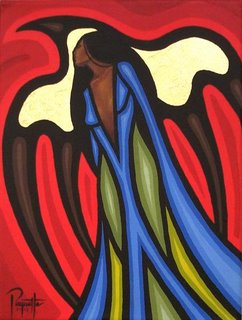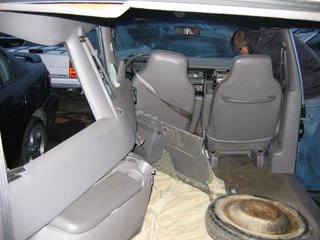Exposing Ourselves in South Park by Tessa Sproule:
I have always been taught to avoid the use of clichés like they were the plague but Sproule spends clichés like a millionaire. Her subject is relevant and her observations hit the nail right on the head but her use of clichés throws off the wealth of knowledge that I have acquired in my years of studying English. “Don’t throw the baby out with the bathwater” and “take no prisoners” are two of the most common adages used in conversational speech. I thought we were not supposed to use jargons or slang in professional writing but Sproule lets them loose like a bull in a China shop. There is no motive for me to let the cat out of the bag over her use of overused phrases. She pushes the envelope by stating that criticism of entertainment is wrong and the real world should be the subject of scrutiny. In a rant, Jello Biafra states that those that want to protect us from vehicles of entertainment such as pornography or heavy metal music are trying to withhold from us our right to information. This could be what a controversy around a cartoon like South Park might be about but I didn’t think that there was much of a buzz about this or Team America World Police. Remember the words of Ghandi, which are almost becoming a cliché, “First they ignore you, then they laugh at you, then they fight you, then you win”. There is a massive concern about the influence governments and businesses have on the F.C.C. and C.R.T.C., many people fear that their main purpose is to censor information from the public. Maybe we should start complaining about those that complain and practice our freedom of speech, just watch what you say.
Pushing the Envelope by Steven Austad: That was a bit of a rant on that last piece, so I’ll keep this one short. Pushing the Envelope is an in depth review of adventure traveling. My only exposure to travel writing is Jon Krakuaer and his books Into Thin Air and Into the Wild. I found his writing to be pretentious but there must be a large degree of egotism in adventure writing. The whole genre exists on being one-up on the last guy and it makes for interesting stories. This piece was factual and maintained my interest as I read.
Nirvana Is A Click Away by Christopher John Farley: Spoiler Alert! This piece is not about Buddhism but exposure of independent musicians on the internet. This is a strong argument for file sharing because it makes the lesser heard music readily available for little or no cost. Talib Kweli, a musician who has publicly come out against file sharing also has a relationship with Jimmy Iovine, who was mentioned in Farley’s essay. Kweli was signed to Rawkus records until Interscope Records bought them. Due to Jimmy Iovine buying out his label Kweli dropped them and started his own production company. Talib Kweli is an artist that you can play for your grandma, one such song of his with Black Star is called For Women that was adapted from the Nina Simone song, but few listeners have been exposed to works because of political opinions that are not compatible with the large record industries. The next Nirvana is out there but so is a lack of interest in intelligent music, too bad for us.
Explorations: Paper Sky: This Exploration was saved on Word, where I write my blog because blogger's word processor sucks, and I lost track of where it goes so wiht out further ado.
This site is an animation based website with a short cartoon as the entrance. The cartoon is a interesting concept, being created completely out of brown paper, but pales in comparison to some of the free animation sites on the net. One would think that there would be more animation on the site but after the intro the site consists of links. The idea of a list of free cartoon sites is great but none of these links can contain as much free entertainment as youtube.com, on which there is endless amounts of independent video and cartoons. I can see the relevance as we are so busy working on our serious essays to lighten the subject matter up. Thanks!










